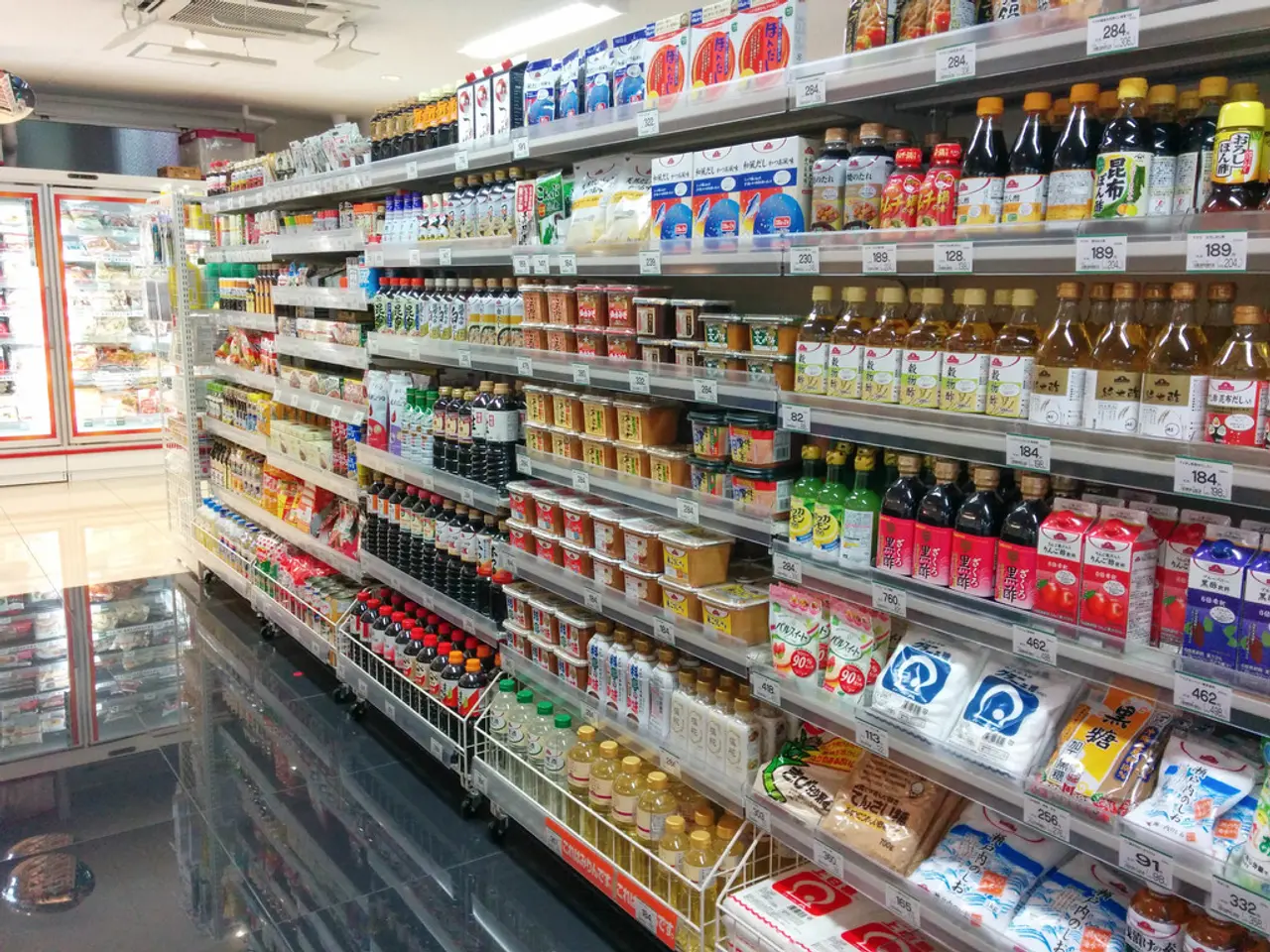Progress in the Development of Inland Waterways
"Surfin' the Rivers: Unleashing Ghana's Inland Waterways for a Smarter, Greener Transportation Era"
Hark back to a time, eons ago, when rivers were the highways of humanity. Today, we're revisiting that philosophy, as we delve into the realm of inland waterways (IW) transportation in Ghana. Inland waterways have long been vital resources for human survival; they offer endless possibilities for transportation, fishing, irrigation, tourism, and hydropower generation.
Ghana, the land of endless contrasts, boasts a myriad of inland water bodies. The Volta Lake, along with rivers such as the Volta, Afram, Oti, Pra, and Ankobrah, form Ghana's primary inland waterways. The mighty Volta Lake, one of the world's largest artificial lakes, stretches over 8,500 km on the backbone of the Akosombo Dam.
Despite the existence of these waterways, little is known about their navigability, especially the Pra and Ankobrah Rivers, once crucial trade routes. The Volta system, however, possesses the potential to connect the southern, middle, northern belts, and landlocked countries when combined with an integrated multi-modal transportation corridor.
Inland water transportation accounts for approximately 8.5 percent of total cargo movement in the United States, 8.3 percent in China, 38 percent in the Netherlands, 24 percent in Belgium, and 13 percent in Germany. Sadly, in Ghana, road transport steals the show, accounting for roughly 95 percent of freight and passenger traffic.
The Volta Lake Transport Company (VLTC) leads commercial operations on the Volta Lake, catering to passengers, cargo, and cross-ferry services. Nonetheless, indigenous people have been using wooden canoes along rivers for centuries.
The Government of Ghana, through the Ministry of Transport, has initiated efforts to bolster the VLTC and IWT in general through the Volta Lake Improvement Project with help from the Korean Exim Bank. Furthermore, the Ghana Maritime Authority (GMA) has demonstrated commitment by promoting safety on the Volta Lake and removing hazardous tree stumps, improving overall navigation conditions.
The revitalization of inland water transportation is crucial for Ghana. Here's why:
- Energy Efficiency: One liter of fuel can carry 24 tonnes on the road, 85 tonnes by rail, and an impressive 105 tonnes by IW.
- Environmental Friendliness: IWT reduces carbon emissions, making it a greener alternative to traditional road and rail transportation.
- Job Creation: Inland water transportation contributes to employment opportunities for boat builders, crew members, port workers, and other ancillary businesses.
- Revenue Generation: Governments can collect taxes on goods moved via IWT, generating additional income.
- Improved Connectivity: The development of inland waterways enhances interconnectivity between remote regions, stimulating commerce and growth.
- Tourism Opportunities: The natural beauty of Ghana's waterways attracts tourists, offering a unique and authentic travel experience.
To exploit Ghana's full IWT potential, a comprehensive understanding of the navigability of water bodies beyond the Volta system is essential. Possible navigable rivers like the Pra and Ankobrah can provide crucial arteries for transportation, yet they currently face numerous challenges, such as pollution from illegal mining activities.
Restoring these rivers to health is key to unlocking their transportation potential. Local communities, civil society groups, and other stakeholders should be involved in the planning and implementation process for a cleaner, greener future for Ghana's waterways.
Ghana could adopt a focused approach, developing only commercially significant inland waterways, ensuring resources are used prudently for maximum impact. In addition, effective road, rail, and coastal shipping integration is essential for IWT's seamless connectivity.
The central government should also increase its funding allocation for inland waterway development and maintenance, similar to road and rail projects. Moreover, a strategic funding and subsidy scheme, tax and custom concession plan, and modal shift incentives should be enacted to encourage the growth of IWT.
Lastly, the governance structure for inland waterports needs to be streamlined. Institutions involved in the decision-making and operational process, such as the Volta River Authority, Ghana Maritime Authority, Volta Lake Transport Company, and Ghana Ports and Harbours Authority, must be clearly defined.
The future of Ghana's waterways is bright. Let's ride the river currents to a cleaner, greener, and more prosperous tomorrow!
The author is Executive Director, Institute for African Maritime Development - [email protected]
[1] https://www.sciencedirect.com/science/article/pii/S2214623017306087[2]https://www.sciencedirect.com/science/article/pii/S0048969722007250[3] https://pubs.iied.org/10585IIED/[4] https://journals.sagepub.com/doi/abs/10.1177/1469306219890874[5] https://www.researchgate.net/publication/332616581_The_pra_river_in_Ghana_restoration_of_a_polluted_river_system_from_galamsey_to_urban_waste_with_special_focus_on_the_influence_of_arsenic_throughout_the_event_water_cycle_and_floodplain_sediments
- To maximize the potential of Ghana's inland waterways (IW) for a sustainable transportation era, analysis of the navigability of rivers like the Pra and Ankobrah, beyond the Volta system, is essential.
- IWT, being a more energy-efficient and environmentally friendly mode of transportation compared to road and rail, could generate additional revenue through taxes on goods transported, while also creating numerous job opportunities.
- Comprehensive policy reforms, such as increased funding allocation for IW development and maintenance, strategic funding schemes, tax and custom concessions, and modal shift incentives, are needed for the growth of IW transportation.
- A streamlined governance structure for inland waterports and a clear delineation of roles for institutions like the Volta River Authority, Ghana Maritime Authority, Volta Lake Transport Company, and Ghana Ports and Harbours Authority, are crucial for efficient decision-making and operation.
- Addressing challenges faced by rivers, such as pollution from illegal mining activities, is key to restoring them to health and unlocking their transportation potential.
- Collaboration with local communities, civil society groups, and other stakeholders in the planning and implementation process is vital for a sustainable and inclusive development of Ghana's waterways.




